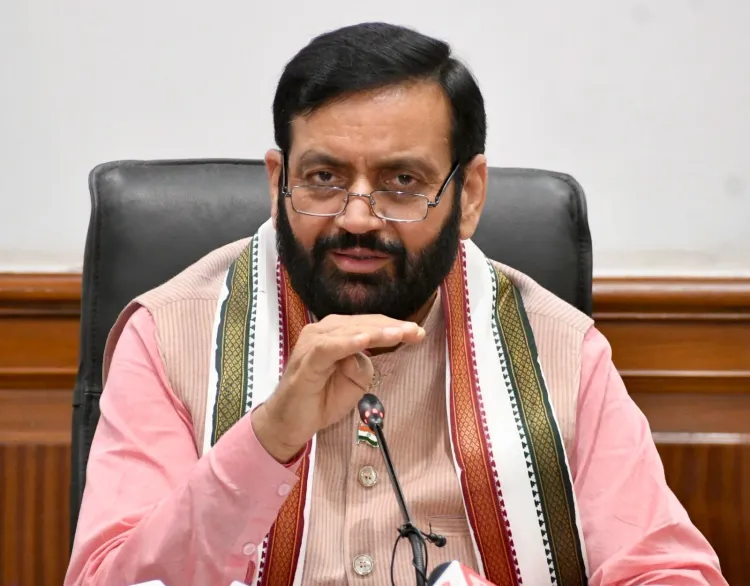What New Land Policy and Pension Scheme Did the Haryana Cabinet Approve?

Synopsis
Key Takeaways
- New land policy prevents distress sales.
- Unified Pension Scheme to benefit over 200,000 employees.
- Minimum pension of Rs 10,000 guaranteed.
- Family will receive 60% of the last-drawn pension upon death.
- Government contribution to pension scheme increases to 18.5%.
Chandigarh, June 26 (NationPress) In a bid to assist landowners and prevent the distress sale of land during emergencies when suitable buyers are unavailable, the Haryana Cabinet approved a new land acquisition policy aimed at development projects on Thursday. Additionally, the Cabinet adopted the Unified Pension Scheme (UPS).
Chairing the meeting, Chief Minister Nayab Singh Saini sanctioned the policy for the voluntary sale of land to government departments and associated entities, including boards, corporations, and government companies.
The primary goal of this policy is to offer a platform to landowners to prevent distress sales in urgent situations.
Moreover, landowners will now have the opportunity to engage in decision-making concerning government projects by providing their lands and ensuring they receive a fair market price.
In a pivotal move to secure employee futures, the Cabinet has endorsed the Unified Pension Scheme (UPS) as notified by the Government of India under the National Pension System (NPS).
Set to commence on August 1, this groundbreaking initiative will benefit over 200,000 employees appointed since January 1, 2006.
The approved scheme aims to guarantee a minimum pension and family pension for government employees.
Under the Unified Pension Scheme (UPS), employees will receive 50% of their average basic pay from the last 12 months before retirement, contingent upon completing 25 years of service.
A minimum guaranteed pension of Rs 10,000 per month will be assured for employees retiring after 10 years of qualifying service.
In the unfortunate event of a pensioner's death, their family will receive 60% of the last drawn pension.
Both the assured pension and family pension will be subject to dearness relief, calculated similarly to the dearness allowance for active employees.
However, dearness relief will only be applicable once pension payments begin. Additionally, a one-time payment will be permitted at the time of retirement, amounting to 10% of the monthly remuneration (basic pay plus dearness allowance) for every six months of completed service.
This one-time payment will not affect the guaranteed pension payout, clarified an official statement.
Currently, under the New Pension Scheme, employees contribute 10%, while the government contributes 14%. With the implementation of the UPS, the government's contribution will rise to 18.5%, leading to an estimated monthly cost of Rs 50 crore and an annual expense of Rs 600 crore.
Current government employees under the NPS, as well as new hires, will have the option to choose between the UPS and the existing NPS without the UPS.
Once an employee opts for the UPS, acceptance of all terms and conditions will be assumed, and this choice will be irrevocable.









